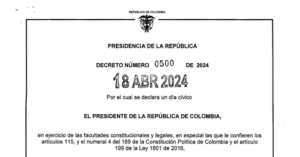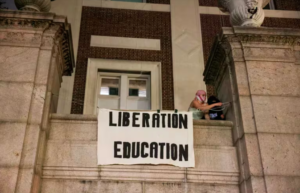
Former Colombian President Álvaro Uribe will make history as the first former president to stand trial on charges of bribery and procedural fraud. The landmark case has sparked public debate and could mark a turning point for the country’s justice system.
Uribe, who was president from 2002 to 2010, has been accused of bribing former paramilitaries to change their testimonies linking him to paramilitarism in Antioquia. The allegations first surfaced in 2018, but it was not until now that the Attorney General’s Office found sufficient evidence to bring Uribe to trial.
The case has been closely watched by Colombians, many of whom see it as a test for the country’s judicial system, which has long been criticized for corruption and political influence. The question of whether Uribe, a powerful figure in Colombian politics, will be held accountable for the crimes he is accused of has provoked intense debate and divided public opinion.
Throughout the investigation, Uribe has consistently maintained his innocence and argued that his rights have been violated. However, the prosecution continues to present new evidence, further strengthening its case against him.

The significance of Uribe’s trial goes beyond the individual and speaks to broader issues of Colombia’s past and present. The accusations against him shed light on the role of former paramilitaries, responsible for some of the most brutal human rights abuses during the country’s decades-long armed conflict.
The case also highlights the continued presence and influence of former paramilitaries in Colombia’s violent past and their ability to influence the country’s political landscape. Colombians anxiously await the start of this historic trial.
As Colombia’s judiciary determines which court will conduct the trial and schedules an indictment hearing, Uribe’s future remains uncertain. The crimes for which he is charged expire in 2026, so the trial could last for years.
With information from El Colombiano






